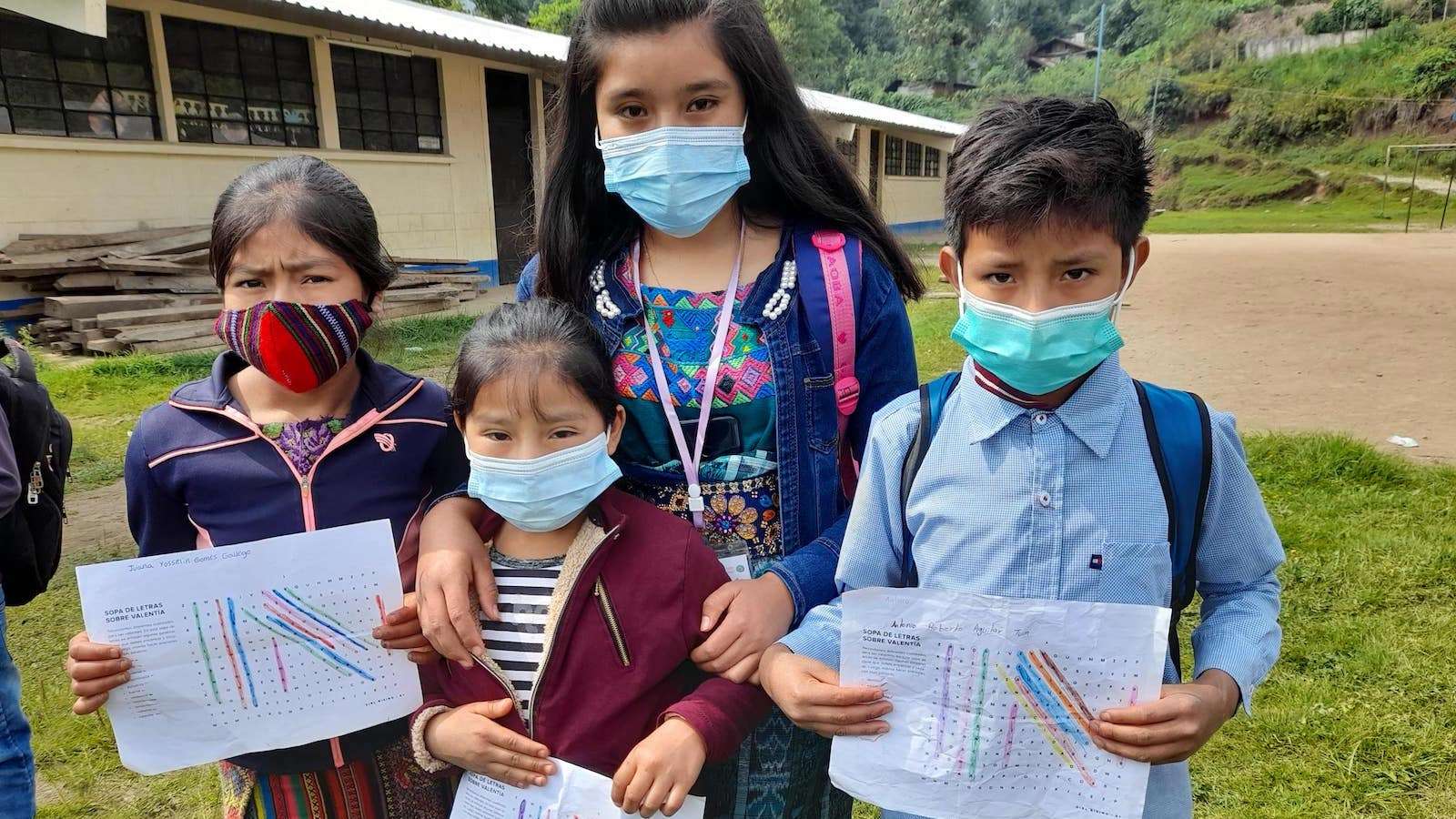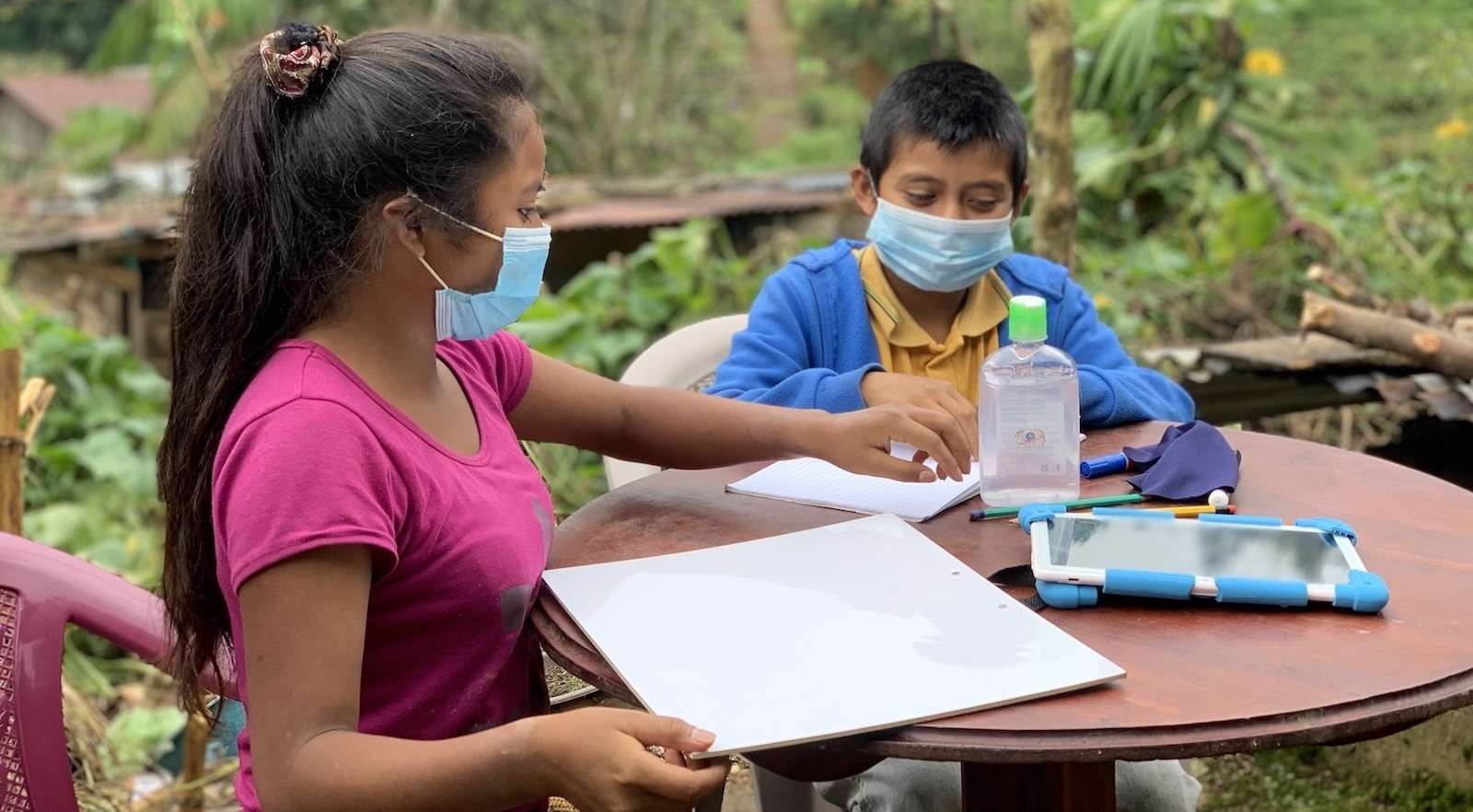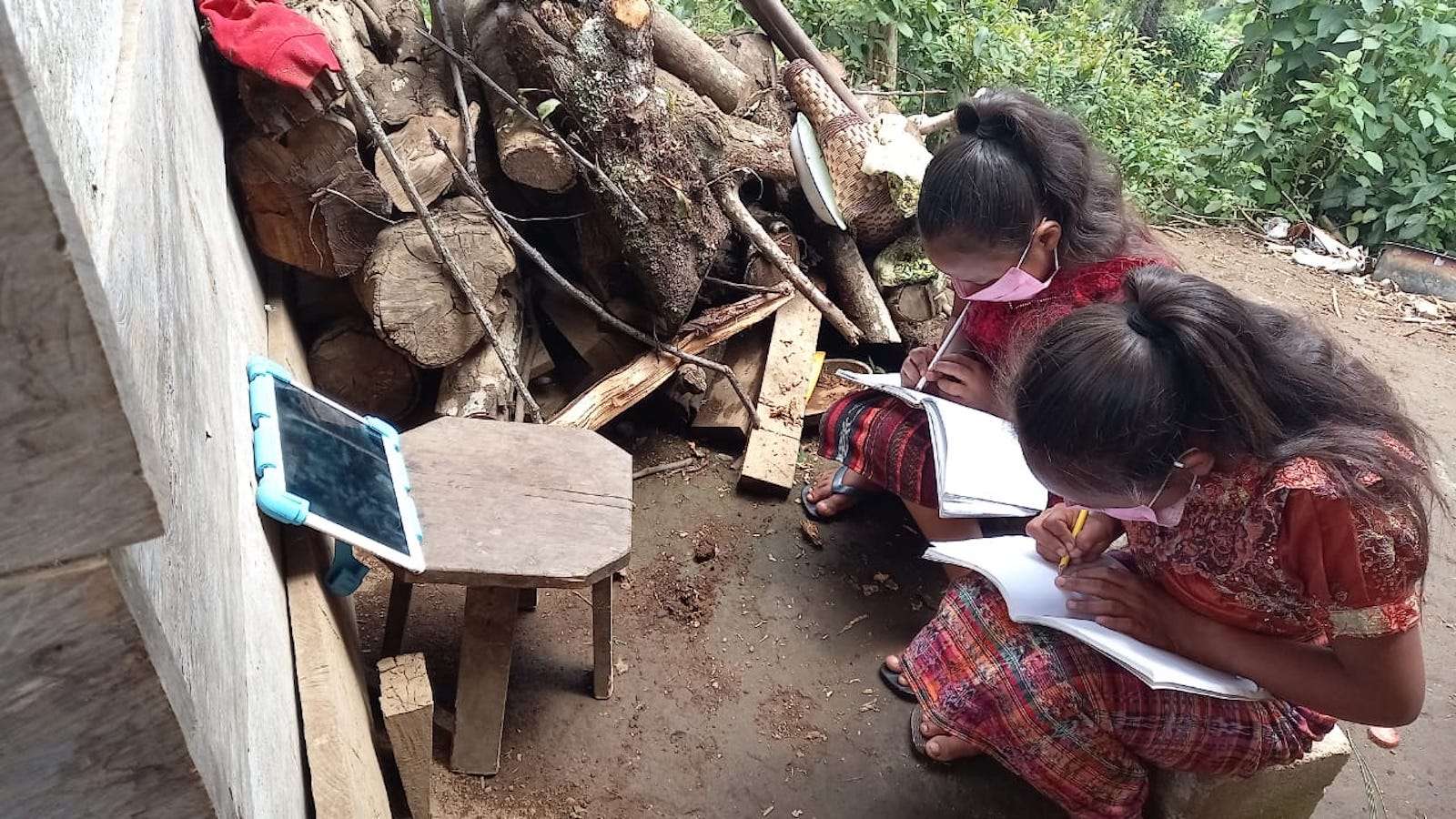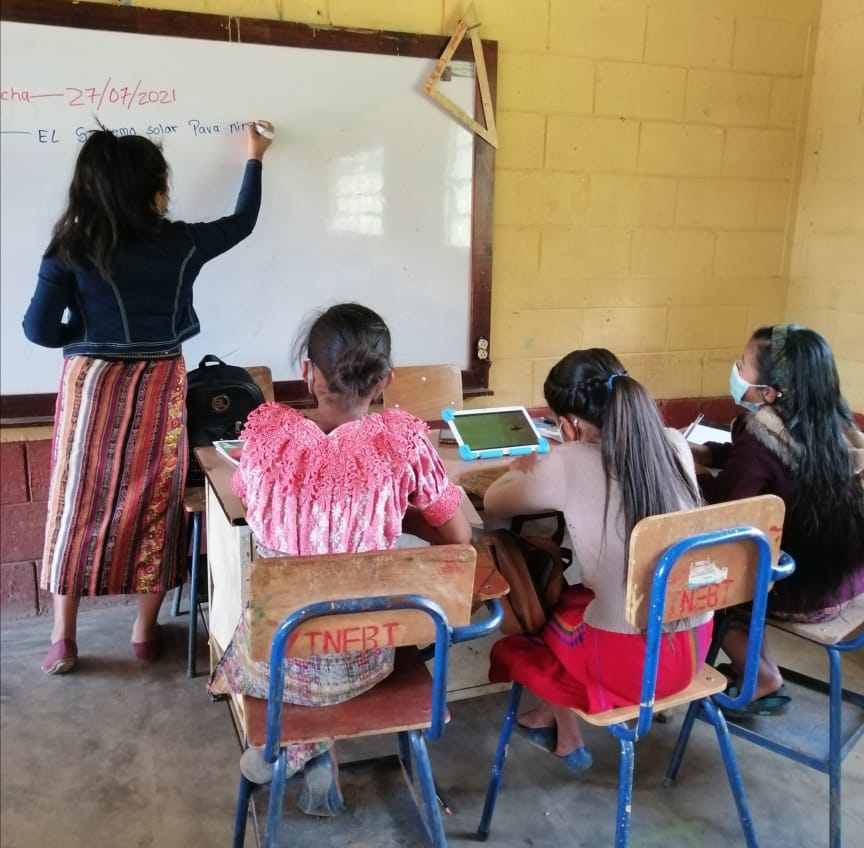


Learning Circles Help Mayan Students Stay in School
Canada Students Offering Support (SOS)
Maria*, a Mayan adolescent from rural Guatemala, was eager to pursue an education and had the drive to excel. Despite her ambition, Maria faced substantial cultural barriers and resistance from her father, who believed girls were best suited to family life and didn’t benefit from education.
In Guatemala, only 67% of students who start primary school move on to lower secondary school, and only 56% of those move to the next stage of education, with continuation rates lowest among rural Mayan communities, and especially women and girls. In 2015, The Gender Inequality Index positioned Guatemala at 113 out of 159 countries, demonstrating a strong presence of discriminatory social norms.
Canada Students Offering Support (SOS) and local partner Semillas de Innovacion para Innovacion y Desarrollo Sostenable (SIDS), tested an innovation where Mayan adolescents (girls and boys ages 14-21) were empowered as mentors supporting grade 4-6 students by leading neighbourhood-based “learning circles”. These circles were youth-driven learning spaces enabled by e-learning resources and inclusive community environments. The activities supported academic and personal development, both for mentees and mentors, contributing to improved commitment to education, access to learning resources, and enhanced gender equality. The innovation aimed to improve academic performance and retention among Indigenous Mayan youth, with a focus on girls.

The innovation also engaged the broader community. Multi-day training and consultations were facilitated with support from Girl Rising Guatemala - engaging parents and teachers with the intent to strengthen community-wide support for gender equality. Three dialogue events were hosted at the launch of the program, prior to COVID restrictions taking effect. Additional dialogues were hosted with a small subset of parents, each representing different stakeholder groups within each beneficiary community. Program staff also engaged in small groups with parents on an ongoing basis through informal interactions as part of learning circle coordination.
After the testing was complete, parents showed a 39% improvement in the Knowledge Attitude Practices (KAP) score on gender equality, while teachers, mentors, and mentees all demonstrated significant improvements. The rate at which students continued studies after completion of grade 6 into lower secondary school rose by 22.7%, while 98.7% of mentors continued studying throughout the entirety of the program and 96% continued beyond graduation from lower secondary school (significantly outperforming national and regional averages in the short term). More than 80% of students, teachers and parents demonstrated improved knowledge and attitudes toward gender equality.
"My Dad used to think that men should be served food first, and he also said that men take advantage of their studies but women not so much. He thought girls just wanted to get married and drop out of school. After he saw my commitment to the program, he has been encouraging me to continue fighting for my dreams and studies. Today, I am confident that I can get ahead and become a great professional. I have spoken with my brothers and parents about what I have learned in the gender equality workshop that both men and women have the same rights” – Maria
*name has been changed to protect the minor’s identity

